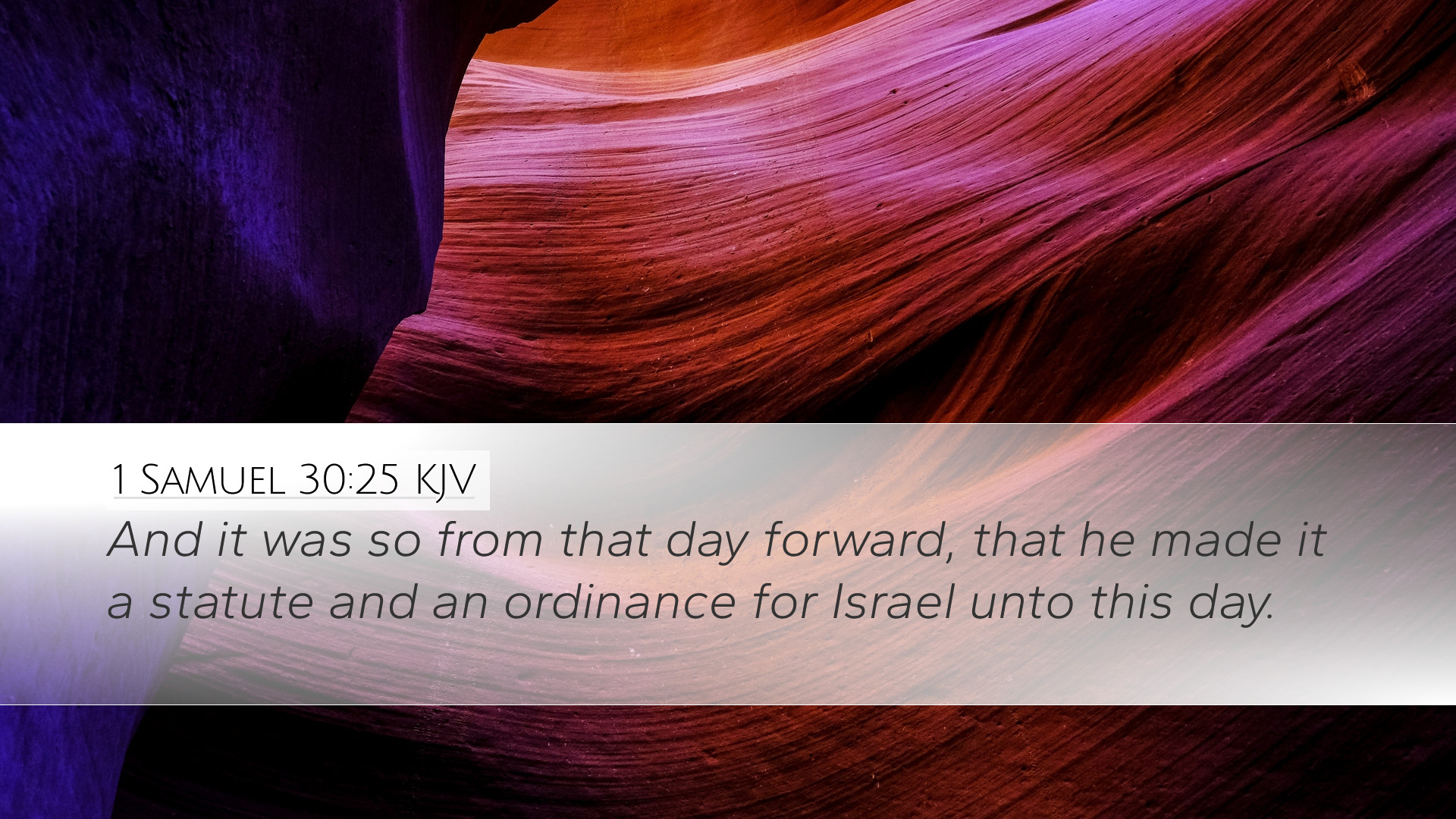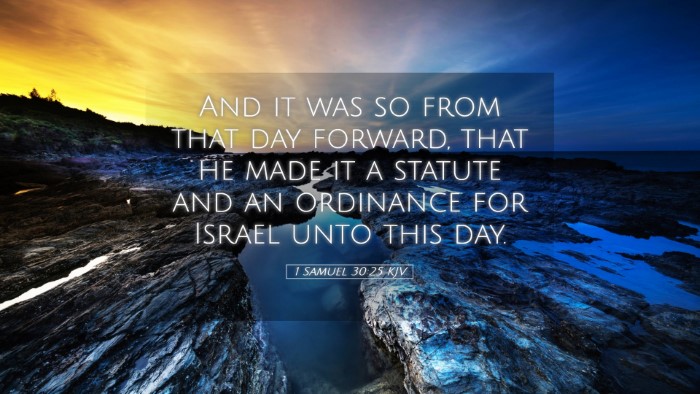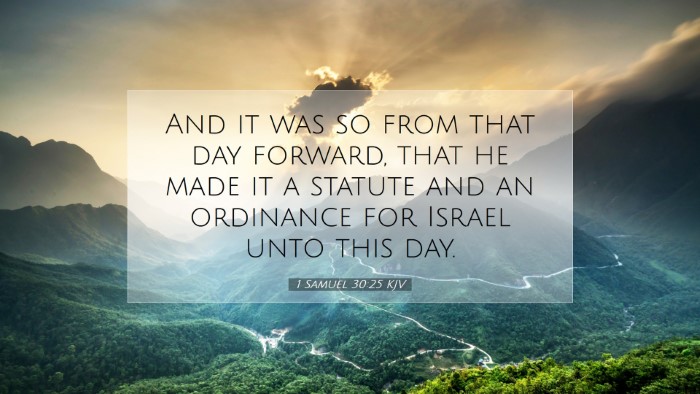Commentary on 1 Samuel 30:25
Verse: "And it was so, from that day forward, he made it a statute and an ordinance for Israel unto this day."
Introduction
The context of 1 Samuel 30 is crucial for understanding the significance of verse 25. This chapter recounts the distressing event where David's camp was attacked by the Amalekites while he was away. The emotional turmoil he experienced, coupled with the eventual victory, lays a foundation for the principles articulated in this verse. Let's explore the insights derived from esteemed public domain commentaries like those of Matthew Henry, Albert Barnes, and Adam Clarke.
Historical Context
Matthew Henry's Commentary: Henry highlights how David, upon his return from Ziklag, found his city burned and his people taken captive. The devastation led him to seek strength in the Lord. In verse 25, Henry observes that the statute established by David signifies a transformative moment in leadership. This law exemplifies the need for ethical guidance in the aftermath of crisis.
Albert Barnes's Notes: According to Barnes, David's decision to formalize the act of sharing spoils of victory among all involved represents a critical juncture in his leadership. This new practice served to unite the troops and the people, reinstating a sense of order and fairness amid chaos. Barnes points out that the ordinance is not only a matter of practicality but also reflects deep moral convictions post-recovery.
Theological Insights
Adam Clarke’s Commentary: Clarke provides an in-depth analysis that situates verse 25 within a theological framework. He argues that the statute represents God’s divine providence and the importance of communal decision-making. In establishing this ordinance, David acknowledged God’s sovereignty in their victory. Clarke emphasizes that laws formed in response to divine intervention are intended to promote justice and communal integrity.
Common Themes in Public Domain Commentaries:
- The role of leadership: The act of establishing a statute indicates the significance of just governance. David’s actions reflect a leader’s responsibility to provide moral direction to the people.
- Divine Providence: This verse illustrates how God’s guidance plays a crucial role in the life of a community. The aftermath of David’s victory serves as a reminder of dependency upon divine help.
- Community and Unity: By ensuring that all soldiers and their families share in the blessing of victory, David fosters a sense of unity and community among the people of Israel.
Practical Application
For contemporary readers, especially pastors and theologians, this verse serves as a powerful reminder of the values of leadership, justice, and community. In applying this teaching, leaders are encouraged to:
- Embrace fair practices: Ensure that moments of triumph reflect justice and equity within congregational settings.
- Seek divine guidance: Approach decision-making with prayer and reliance on God’s wisdom, especially during times of crisis.
- Promote unity: Work toward fostering community within the congregation, ensuring that all members feel included as part of the family of God.
Conclusion
1 Samuel 30:25 is not merely a historical note; it encapsulates profound theological and ethical implications for leadership within the community of faith. Drawing from the insights of notable commentators like Matthew Henry, Albert Barnes, and Adam Clarke, it becomes evident that the establishment of this statute was pivotal in shaping David's legacy as a leader. Through examining this verse, modern readers are inspired to uphold the values of unity, justice, and divine reliance in their own communities.


